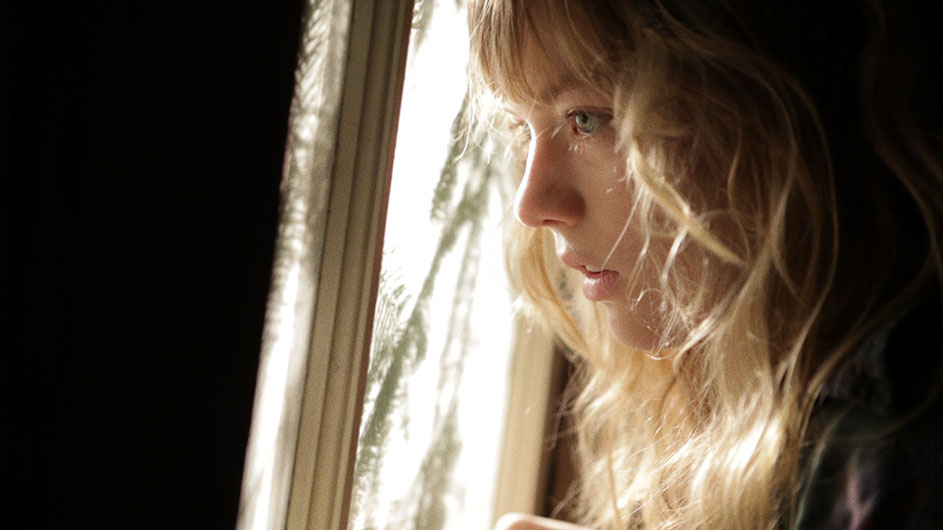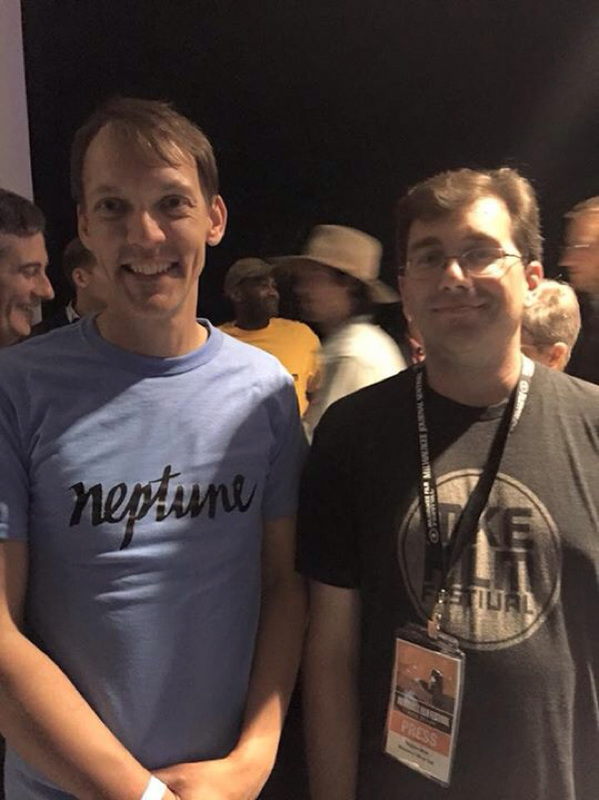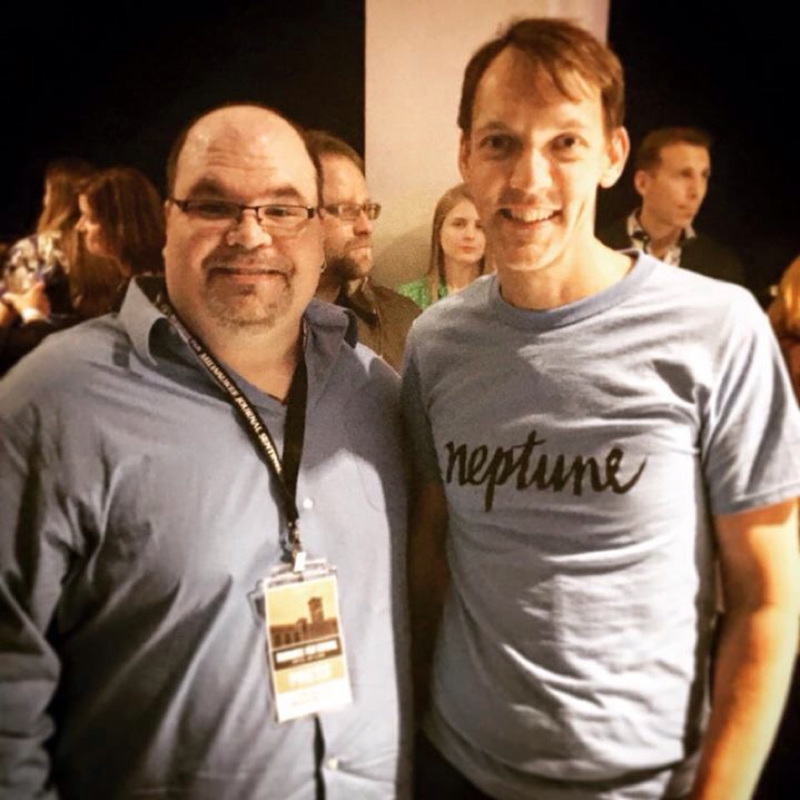Neptune is about Hannah (Jane Ackerman) a 14 year old girl who was raised by a priest on an island off the coast of Maine. After the death of a boy in her class she becomes obsessed with the boy and it changes the way she sees her life. Not knowing who her true parents are all she knows is the priest that took her in and church. But her fascination with the boy opens up a new world as she goes to work on the lobster boat with the boys grieving dad. As her eyes are opened to other experiences she begins to question everything she knows. Eventually she needs to make a decision to either go to the Episcopal School the priest wants her to go to or make her own way in life.
For all those little things that happens you have to believe the script was pretty great. One of the hardest things to write into a script is subtlety. And that is something this script has a lot of. Its the little moments that all add up. How one event when you are 14 can have a great impact on your life is hard to convey but writer/director Derek Kimball and writer Matthew Konkel manage to do it very convincingly.
We were lucky enough to get screenwriter Matthew Konkel to answer a few questions for us. Check it out below.
Matthew Konkel: After I decided our next film should be a feature, the basic idea for the story, about a young girl living her last summer on an island off the coast of Maine, came from Derek. During a four day period in 2011, what I called our “hunting trip”, Derek, me and our friend Matt Brown drove up and down the coast of Maine and fleshed out a basic scene map of the film. From there, since Derek and I obviously live in different states, we collaborated on writing the script over the following year via email, g-chat and phone using screenwriting program Celtx. Considering the final draft of what became Neptune was very, very different from the first, the writing process was not without its rough patches. From the beginning we decided never to compromise the script with anything that felt “subpar.” We challenged ourselves to challenge each other and this spawned a few conflicts but also resulted in a fantastic script because we knew what we had was the best we could do.
MMT: Looks like you have previously done short films. How was the transition to a feature length film?
MK: The process of making a short film and making a feature was the same, everything is just more. There’s more time required, more money needed and more people that needed to be involved. Things can get real complicated real quick. Fortunately, we had the experience of making a couple of films prior in our back pocket and that experience taught us how to deal with the challenges.
Unquestionably, the most difficult part of the feature making process, besides writing a good script, was raising the money to make it. After writing the story and making a promotional trailer we spent the next eighteen months putting together a fund raising strategy and getting all the donated capital we could to make the film. Luckily, we had lot of great friends and talented, dedicated folks in our corner that could help us. There were some choppy seas on the journey to making the feature film, but we learned a lot along the way and now were more prepared and more confident for the next one.
MMT: As a Milwaukeean what made you set the film in Maine?
MK: There was never any question about where the film would be set. As a born and raised Mainer, Derek always wanted to make a feature in his home state. Neptune is his “love letter” to his home. Our previous film, The Bully, was shot and made all in Wisconsin using Wisconsin talent. I was more than happy to have Derek make the next film in Maine.
MMT: The cinematography was amazing. Can you tell us a bit about the shoot and how it was shooting on the island?
MK: There was never any actual shooting on an island, ha ha. Surprise. We had once talked about finding an island to shoot on but with the way the Maine coast and landscape is, with so many little inlets and peninsulas, it was unnecessary.
Our cinematographers, Jayson Lobozzo and Dean Merrill, are both amazingly talented people and experts at their job. Additionally, Derek is very good at communicating through various artistic means (drawing, collected imagery) what he wants a scene or particular shot to look like. He prepared for every shooting day by knowing exactly what aesthetic value he wanted for every shot.
MMT: According to IMDB the original cut was almost 3 hours. Sounds like the editing was tough. What did you have to cut out?
MK: Derek was also the editor on the project because we couldn’t afford to hire anyone. Not that that’s a compromise in my book, Derek is a great editor, but it would have been nice to have an outsider’s perspective and see how they put it together.
I hated to lose anything, but yeah, the first cut was very long so we needed to go back and figure out what we could lose and still maintain the essence of the story without distilling it too much. In the script as well as in the first cut, the role of Thomas was much larger. There were a lot of scenes and longer scenes with him and Hannah we had to trim down or cut completely. There was also a much longer ending sequence which was shot and edited but ultimately cut for time and because it seemed to go a little beyond what we were trying to achieve in the conclusion.
MMT: How did you find Jane Ackermann? She was amazing in the film and can't wait to see what she does next.
MK: Funny thing about finding Jane. After doing a thorough search throughout Maine and Boston, Derek came across the intriguing headshot and resume of young Miss Ackermann. Not only did she live in Maine, she lived in Portland. Not only did she live in Portland, she lived just around the corner from Derek. He brought her in for an audition and screentest and discovered she was perfect for the role.
Jane is indeed amazing in the film. Neptune was a tall order for a young actor, Jane is in nearly every scene of the film and it required over a three-year commitment, but she met the challenge like an already true seasoned professional. She has a natural, cinematic radiance and I believe she’s going to have a great career. We were incredibly lucky to find her and work with her at this stage of her life.
MMT: What else can you tell us about the shoot?
MK: The shoot was a long one—over a three year period shooting on weekends and some longer stretches during the springs and summers. Many of the crew and cast, including the director, had to work on the film around their regular jobs so the process was long. Everyone from cast to crew were working for mere stipends and/or because they were dedicated to the project. It’s a true testament to the artistic integrity of Maine and Wisconsin that we were able to see this amazing film through to fruition.
Overall I give this movie an A. It really surprised me and sucked me in. It reminded me a bit of The Virgin Suicides where teenagers come of age when they become obsessed with the mysteries of life. And it's the little things that can affect us most.



 RSS Feed
RSS Feed